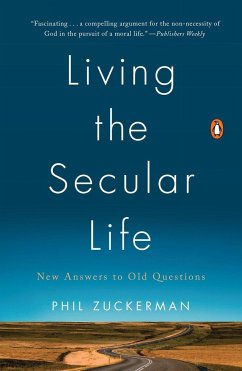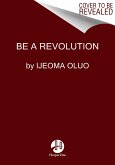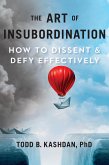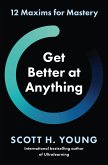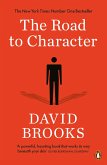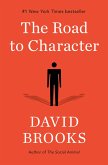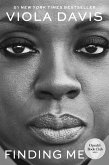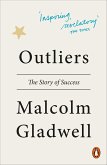A humane and sensible guide to and for the many kinds of Americans leading secular lives in what remains one of the most religious nations in the developed world. The New York Times Book Review
Over the last twenty-five years, no religion has become the fastest-growing religious preference in the United States. Around the world, hundreds of millions of people have turned away from the traditional faiths of the past and embraced a moral yet nonreligious or secular life, generating societies vastly less religious than at any other time in human history. Revealing the inspiring beliefs that empower secular culture alongside real stories of nonreligious men and women based on extensive in-depth interviews from across the country Living the Secular Life will be indispensable for millions of secular Americans.
Drawing on innovative sociological research, Living the Secular Life illuminates this demographic shift with the moral convictions that govern secular individuals, offering crucial information for the religious and nonreligious alike. Living the Secular Life reveals that, despite opinions to the contrary, nonreligious Americans possess a unique moral code that allows them to effectively navigate the complexities of modern life. Spiritual self-reliance, clear-eyed pragmatism, and an abiding faith in the Golden Rule to adjudicate moral decisions: these common principles are shared across secular society. Living the Secular Life demonstrates these principles in action and points to their usage throughout daily life.
Phil Zuckerman is a sociology professor at Pitzer College, where he studied the lives of the nonreligious for years before founding a Department of Secular Studies, the first academic program in the nation dedicated to exclusively studying secular culture and the sociological consequences of America s fastest-growing faith. Zuckerman discovered that despite the entrenched negative beliefs about nonreligious people, American secular culture is grounded in deep morality and proactive citizenship indeed, some of the very best that the country has to offer.
Living the Secular Life journeys through some of the most essential components of human existence child rearing and morality, death and ritual, community and beauty and offers secular readers inspiration for leading their own lives. Zuckerman shares eye-opening research that reveals the enduring moral strength of children raised without religion, as well as the hardships experienced by secular mothers in the rural South, where church attendance defines the public space. Despite the real sorrows of mortality, Zuckerman conveys the deep psychological health of secular individuals in their attitudes toward illness, death, and dying. Tracking the efforts of nonreligious groups to construct their own communities, Zuckerman shows how Americans are building institutions and cultivating relationships without religious influence. Most of all, Living the Secular Life infuses the sociological data and groundbreaking research with the moral convictions that govern secular individuals and demonstrates how readers can integrate these beliefs into their own lives.
A manifesto for a booming social movement and a revelatory survey of this overlooked community Living the Secular Life offers essential and long-awaited information for anyone building a life based on his or her own principles.
Hinweis: Dieser Artikel kann nur an eine deutsche Lieferadresse ausgeliefert werden.
Over the last twenty-five years, no religion has become the fastest-growing religious preference in the United States. Around the world, hundreds of millions of people have turned away from the traditional faiths of the past and embraced a moral yet nonreligious or secular life, generating societies vastly less religious than at any other time in human history. Revealing the inspiring beliefs that empower secular culture alongside real stories of nonreligious men and women based on extensive in-depth interviews from across the country Living the Secular Life will be indispensable for millions of secular Americans.
Drawing on innovative sociological research, Living the Secular Life illuminates this demographic shift with the moral convictions that govern secular individuals, offering crucial information for the religious and nonreligious alike. Living the Secular Life reveals that, despite opinions to the contrary, nonreligious Americans possess a unique moral code that allows them to effectively navigate the complexities of modern life. Spiritual self-reliance, clear-eyed pragmatism, and an abiding faith in the Golden Rule to adjudicate moral decisions: these common principles are shared across secular society. Living the Secular Life demonstrates these principles in action and points to their usage throughout daily life.
Phil Zuckerman is a sociology professor at Pitzer College, where he studied the lives of the nonreligious for years before founding a Department of Secular Studies, the first academic program in the nation dedicated to exclusively studying secular culture and the sociological consequences of America s fastest-growing faith. Zuckerman discovered that despite the entrenched negative beliefs about nonreligious people, American secular culture is grounded in deep morality and proactive citizenship indeed, some of the very best that the country has to offer.
Living the Secular Life journeys through some of the most essential components of human existence child rearing and morality, death and ritual, community and beauty and offers secular readers inspiration for leading their own lives. Zuckerman shares eye-opening research that reveals the enduring moral strength of children raised without religion, as well as the hardships experienced by secular mothers in the rural South, where church attendance defines the public space. Despite the real sorrows of mortality, Zuckerman conveys the deep psychological health of secular individuals in their attitudes toward illness, death, and dying. Tracking the efforts of nonreligious groups to construct their own communities, Zuckerman shows how Americans are building institutions and cultivating relationships without religious influence. Most of all, Living the Secular Life infuses the sociological data and groundbreaking research with the moral convictions that govern secular individuals and demonstrates how readers can integrate these beliefs into their own lives.
A manifesto for a booming social movement and a revelatory survey of this overlooked community Living the Secular Life offers essential and long-awaited information for anyone building a life based on his or her own principles.
Hinweis: Dieser Artikel kann nur an eine deutsche Lieferadresse ausgeliefert werden.
A Best Book of 2014, Publishers Weekly:
"Zuckerman is a sociologist who in this groundbreaking book writes clearly, offers unobtrusive statistical support, and provides a persuasive and comprehensive look at the growing contemporary phenomenon of people who choose to live without religion, but with ethics and meaning in their lives."
Library Journal:
The author brilliantly weaves stories and reflections together with empirical sociological research to create a rich portrait of secular America... Highly recommended for all readers, both religious and nonreligious, seeking a more accurate understanding of this ever-growing segment of the American population.
Publishers Weekly:
"In this fascinating work, Zuckerman (Faith No More: Why People Reject Religion), professor of sociology and secular studies at Pitzer College, explores the moral and ethical foundations of secularism, addressing the question of whether you can live a good life without God or religion. Anecdotal evidence abounds; interviews with former religious adherents who have moved into secularism, both within and outside their religious communities, offer a compelling argument for the non-necessity of God in the pursuit of a moral life. "
Booklist:
"With recent polls reporting 30 percent of Americans are nonreligious, while other studies find atheists the least-trusted people in the country, isn t it high time to blow away the myths about the nonreligious? Answering affirmatively, the sociologist founder of the first secular-studies program at Pitzer College presents real secular people as peaceable, productive, and living happily .He also shows that secularism isn t bipolar believer or nonbeliever but includes many with some supernatural beliefs but who aren t religiously observant. And there s not a proselytizer or zealot among this group the point being that secular people are not all indeed, hardly ever Christopher Hitchens or Madalyn Murray O Hair. May one more prejudice fall."
Greg M. Epstein, humanist chaplain at Harvard University; author Good Without God
Phil Zuckerman is without a doubt the leading American sociologist of secularism. And with America secularizing more rapidly and profoundly now than in any previous era in our history, Zuckerman s work has become essential reading for everyday people who want to understand religion and the nonreligious in this country. Living the Secular Life represents the next big chapter in a centuries-old story, so if you ve ever taken an interest in Dawkins, Harris, Hitchens, et al., you certainly need to pick this book up and find out where things are headed.
Bart Campolo, author Things We Wish We Had Said
Since coming out as a post-Christian minister, I ve discovered all kinds of people sincerely pursuing goodness without the nurture, encouragement, and mutual support most church folks take for granted. These folks are hungry for fellowship and pastoral care, but even hungrier for a thoughtful, positive way to communicate their values and commitments to friends and family members instinctively distrustful of anyone who doesn t believe in God. For them and for me Phil Zuckerman is a genuine hero, and Living the Secular Life is a wonderful gift. Here at last is a clear, concise, and compassionate guided tour of the world s fastest-growing way of life. Zuckerman isn t trying to prove everyone else wrong. On the contrary, he s helping the secular community better understand and comport itself, and helping the rest of humanity understand that we re on their side too.
Peter Boghossian, professor of philosophy, Portland State University; author of A Manual for Creating Atheists
For secular people seeking deeper insight into their own worldview, or religious people seeking to better understand the rise of irreligion in society today, this book is indispensable. An engaging, powerful read.
"Zuckerman is a sociologist who in this groundbreaking book writes clearly, offers unobtrusive statistical support, and provides a persuasive and comprehensive look at the growing contemporary phenomenon of people who choose to live without religion, but with ethics and meaning in their lives."
Library Journal:
The author brilliantly weaves stories and reflections together with empirical sociological research to create a rich portrait of secular America... Highly recommended for all readers, both religious and nonreligious, seeking a more accurate understanding of this ever-growing segment of the American population.
Publishers Weekly:
"In this fascinating work, Zuckerman (Faith No More: Why People Reject Religion), professor of sociology and secular studies at Pitzer College, explores the moral and ethical foundations of secularism, addressing the question of whether you can live a good life without God or religion. Anecdotal evidence abounds; interviews with former religious adherents who have moved into secularism, both within and outside their religious communities, offer a compelling argument for the non-necessity of God in the pursuit of a moral life. "
Booklist:
"With recent polls reporting 30 percent of Americans are nonreligious, while other studies find atheists the least-trusted people in the country, isn t it high time to blow away the myths about the nonreligious? Answering affirmatively, the sociologist founder of the first secular-studies program at Pitzer College presents real secular people as peaceable, productive, and living happily .He also shows that secularism isn t bipolar believer or nonbeliever but includes many with some supernatural beliefs but who aren t religiously observant. And there s not a proselytizer or zealot among this group the point being that secular people are not all indeed, hardly ever Christopher Hitchens or Madalyn Murray O Hair. May one more prejudice fall."
Greg M. Epstein, humanist chaplain at Harvard University; author Good Without God
Phil Zuckerman is without a doubt the leading American sociologist of secularism. And with America secularizing more rapidly and profoundly now than in any previous era in our history, Zuckerman s work has become essential reading for everyday people who want to understand religion and the nonreligious in this country. Living the Secular Life represents the next big chapter in a centuries-old story, so if you ve ever taken an interest in Dawkins, Harris, Hitchens, et al., you certainly need to pick this book up and find out where things are headed.
Bart Campolo, author Things We Wish We Had Said
Since coming out as a post-Christian minister, I ve discovered all kinds of people sincerely pursuing goodness without the nurture, encouragement, and mutual support most church folks take for granted. These folks are hungry for fellowship and pastoral care, but even hungrier for a thoughtful, positive way to communicate their values and commitments to friends and family members instinctively distrustful of anyone who doesn t believe in God. For them and for me Phil Zuckerman is a genuine hero, and Living the Secular Life is a wonderful gift. Here at last is a clear, concise, and compassionate guided tour of the world s fastest-growing way of life. Zuckerman isn t trying to prove everyone else wrong. On the contrary, he s helping the secular community better understand and comport itself, and helping the rest of humanity understand that we re on their side too.
Peter Boghossian, professor of philosophy, Portland State University; author of A Manual for Creating Atheists
For secular people seeking deeper insight into their own worldview, or religious people seeking to better understand the rise of irreligion in society today, this book is indispensable. An engaging, powerful read.

